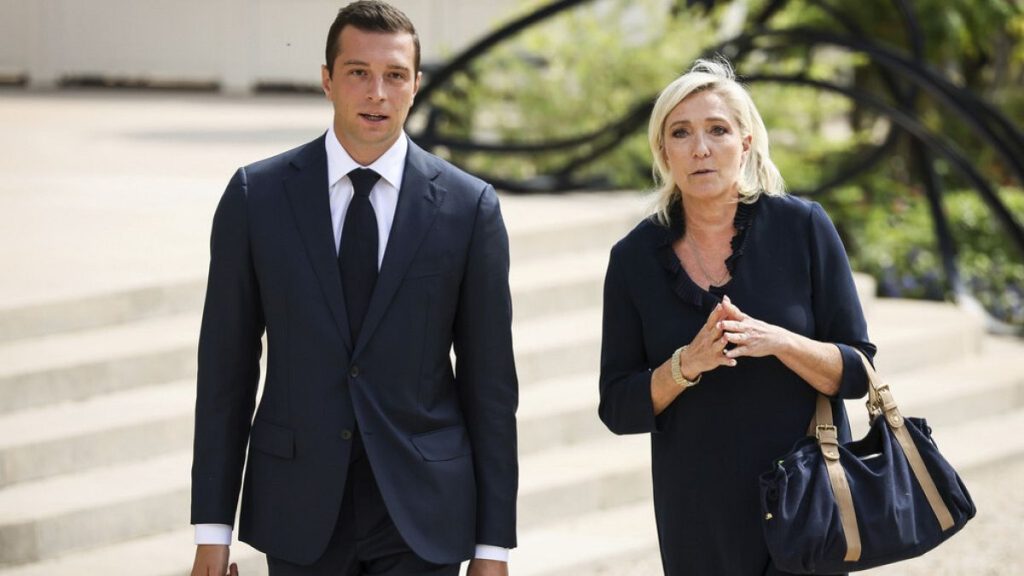France enters a new chapter of political maneuvering with the appointment of François Bayrou as Prime Minister, the fourth to hold the position this year. Bayrou’s immediate challenge is navigating a fragmented parliament to pass the crucial 2025 social security budget, a task that proved insurmountable for his predecessor, Michel Barnier. Barnier’s attempt to push through the budget without a parliamentary vote resulted in a no-confidence motion supported by both the far-right and the left, making his tenure the shortest in French history. This political upheaval underscores the deep divisions within the French political landscape and the difficulty President Emmanuel Macron faces in achieving a stable governing majority.
Bayrou has embarked on a series of meetings with leaders of various political parties, prioritizing dialogue and consensus-building in his approach. Notably, Marine Le Pen, leader of the far-right National Rally (RN), expressed a more positive view of Bayrou’s approach compared to Barnier’s, noting a willingness to listen and engage. This represents a potentially significant shift in dynamics, as Le Pen was instrumental in Barnier’s downfall, criticizing his budget proposals and refusing to lend her party’s support despite last-minute concessions. The RN’s cooperation, or at least its non-opposition, is crucial for Bayrou, given their status as the largest single party in parliament.
Bayrou’s inclusive approach, meeting with parties in order of their size, signals an attempt to bridge the political divide and secure the necessary support for his legislative agenda. However, this strategy faces a significant hurdle with the refusal of Jean-Luc Mélenchon’s far-left France Unbowed (LFI) to participate in talks. This underscores the complexity of the political landscape and the challenge of achieving consensus across the spectrum. Bayrou’s success hinges on his ability to garner support from moderate lawmakers on both the left and right, while also managing the expectations and demands of the RN. This delicate balancing act will be crucial for the stability of his government and the successful passage of the vital social security budget.
The political stakes are high, with France facing significant economic pressures. The country is under scrutiny from the European Union to address its substantial debt, projected to reach 6% of GDP this year. Barnier’s proposed budget, aiming to cut spending and raise taxes by a combined 60 billion euros, faced strong opposition from both the far-right and the left, highlighting the difficulty of implementing austerity measures in a politically charged environment. Bayrou inherits this challenging economic context, and his ability to navigate these pressures while maintaining political stability will be a critical test of his leadership.
Bayrou’s immediate priority is passing emergency legislation to extend the 2024 budget, providing a temporary reprieve while he embarks on negotiations for the 2025 budget. This process is expected to commence in January at the earliest and promises to be a complex and politically fraught undertaking. The success of these negotiations will significantly impact France’s economic stability and the overall direction of the Macron presidency. The ability of Bayrou to forge alliances and secure the necessary parliamentary support will be crucial in determining the outcome of this pivotal political moment.
The French political landscape is marked by deep divisions and competing interests. The rise of the far-right RN, the resistance of the far-left LFI, and the fragmentation of the traditional center have created a challenging environment for governing. Bayrou’s task is to navigate this complex terrain, build consensus, and deliver on critical economic reforms. His success or failure will have significant implications for the Macron presidency and the future political trajectory of France. The coming months will be a crucial test of Bayrou’s political acumen and his ability to forge a path forward in this fractured political landscape.














